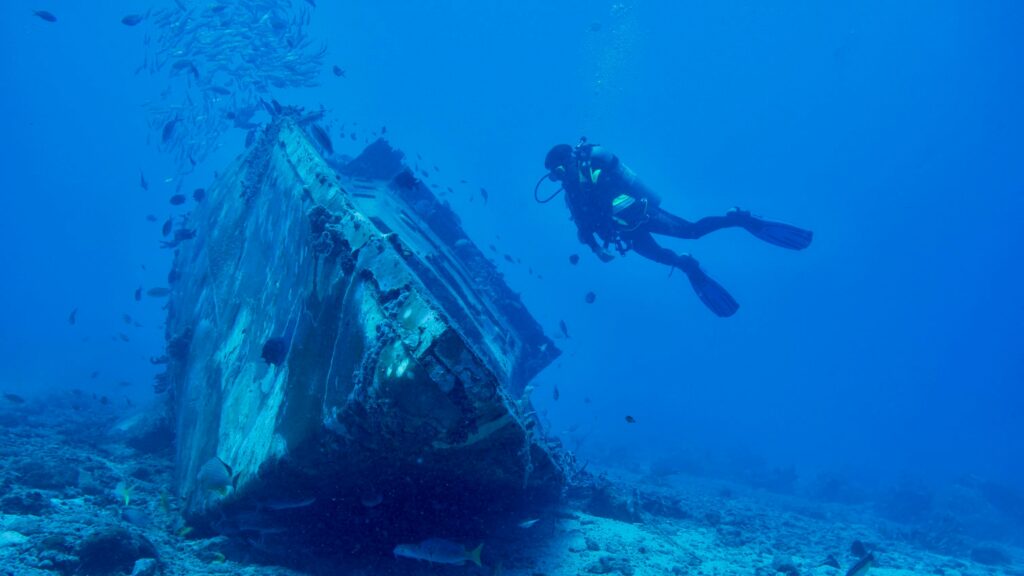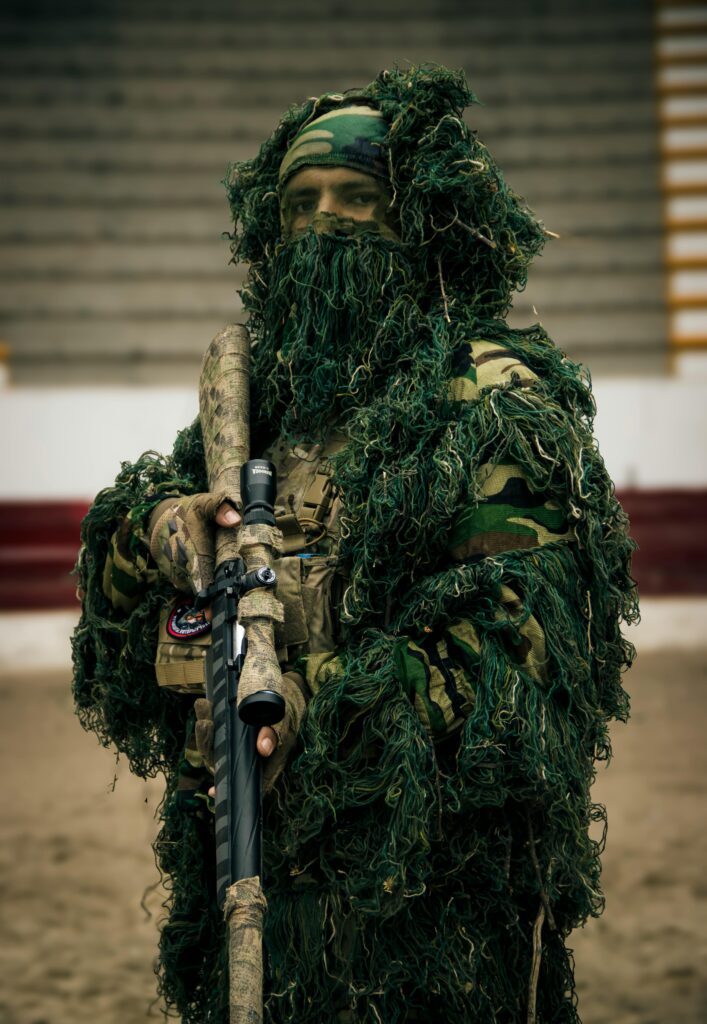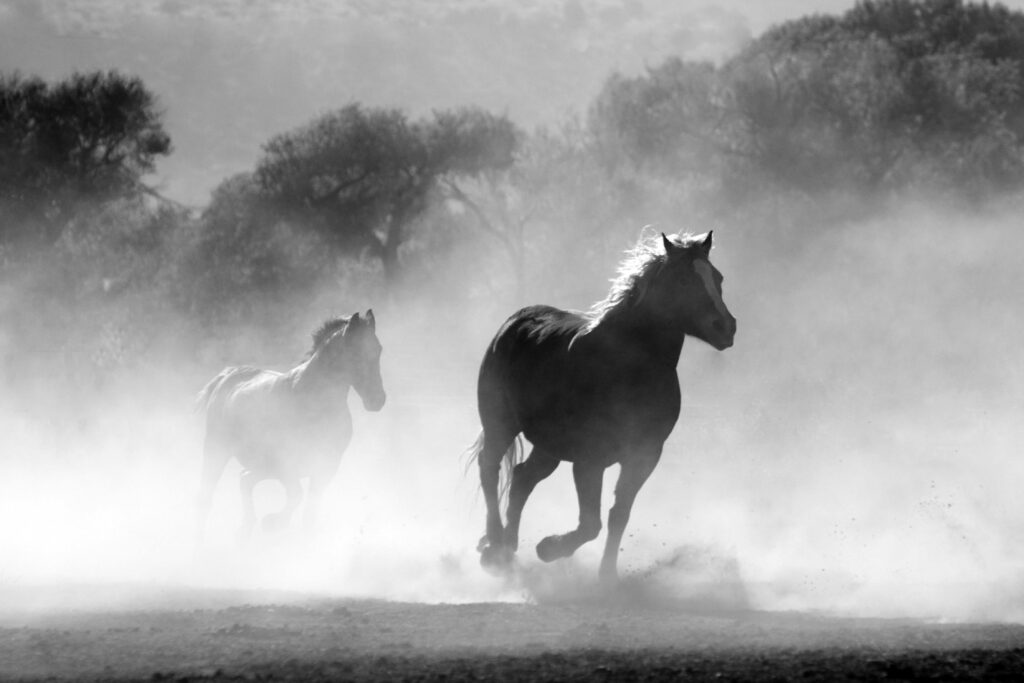Introduction
I learned from that! The U.S. Army Mounted Color Guard & Drill Team had a little down time. Some of the members dared me to climb atop of a wild horse. The horse exploded beneath me, muscles surging as it bolted out of the arena with nothing but its mane in my grip. I had no saddle, no bridle—just raw speed, wild power, and my stubborn determination to hang on. In an instant, the animal bucked hard, launching me high into the air before slamming me back to the earth. I landed on my head, dazed and broken, waking up later with a severe concussion and temporary amnesia. At the time, all I could think was, What just happened?
Looking back, I know exactly what happened: I learned. I learned that courage without preparation is recklessness. I learned that the right tools matter. I learned that sometimes life throws you off so hard that all you can do is get back up, brush off the dust, and decide whether you’ll climb back on again.
That wasn’t the only lesson life handed me. There was the time I got lost on my first cross-country solo flight, the day I almost ran out of air while scuba diving 130 feet deep, the ambushes during military training, and even the moment I let emotions overtake me in a jury trial. Each of these moments felt overwhelming in the moment. But with time, I realized they weren’t failures—they were teachers.
And that’s the heart of this article. As men, especially once we cross 35, we’ve all been “bucked off” in one way or another. Maybe it wasn’t a horse, but perhaps it was a marriage, a career, a health scare, or a dream that didn’t turn out the way we expected. These midlife moments can either break us—or they can build us into the men we were meant to be.
There was an article in Medium – Authority Magazine, which addressed, “Rising Through Resilience“. The article discussed how you can become resilient during turbulent times. The author stated, “I would simply define resilience as the ability to find a way to make it through the difficulties and trials life throws you, respond adaptively, learn from your experiences, & come out the other side stronger for them.” That’s a good definition.
What follows are some of the biggest lessons I’ve learned from being tested, humbled, and sometimes thrown headfirst into reality. My hope is that, in reading them, you’ll find strength, perspective, and maybe even the spark to rise stronger in your own next chapter.
✈️ Lost In Space – I Learned From That
As a student pilot on my first solo cross-country flight, I took off with a sense of freedom that only flying can bring. But somewhere along the route, I lost my bearings. The landmarks didn’t line up with my map, and my heart began to race. Panic set in. As far as the eye could see, there was nothing but large lakes and mountains.
Every pilot is trained for moments like this, but it’s different when you’re alone in the cockpit. Eventually, I slowed my breathing, reviewed my training, and found my way back on course. I had forgotten to adjust my heading indicator to line up with the magnetic compass, which is required every 15 minutes or so in some aircraft.
I learned from that: fear clouds judgment, but calm focus brings clarity.
Lesson for Men Over 35: life after 35 often feels like getting lost mid-journey. You thought you’d know exactly where you’d be by now—yet here you are, off course. The lesson is the same: slow down, breathe, and rely on your training and wisdom to correct your heading.
🌊 130 Feet Deep – Low Air- I Learned From That
I boarded the dive boat for a 130 foot dive on the south side of Aruba. The boat was filled with advance certified scuba divers loaded with expensive underwater camera equipment. We stepped into the deep and submerged to the bottom of the ocean. At 130 feet underwater, strong currents ripped through the ocean floor. The currents were so strong, I kicked as hard as I could, but I couldn’t move one inch forward. The harder I kicked, the faster the air vanished from my tank. I fought to stay in control, but my air supply drained far faster than expected. Panic surged as my air gauge ticked deeper into the red.
I reflected on my scuba training as I gazed towards the surface. The training provided for this situation. An “emergency ascent” involved lifting one arm towards the surface and making one long exhale for as long as you can while rising towards the top. My thoughts raced with the question, “What am I going to do if I take my next breath and there’s no air left in the tank?”
But then I looked to my right and saw a sunken ship. I thought to myself, “If I can maneuver next to that sunken ship, maybe it will block the currents and I’ll be able to move forward.” I tried that idea, and it worked. When all of the divers surfaced, everyone’s air was in the red.
I learned from that: never underestimate the conditions—and always monitor your resources.
Lesson for Men Over 35: in your younger years, you might push limits recklessly. But past 35, resources like health, time, and energy matter more than ever. If you burn through them without awareness, you’ll come up gasping.

🤕 Training Matters – I Learned From That
I arrived in Rio de Janeiro, Brazil, and got a room on Copacabana Beach. The next day, a dive site rep picked me up for the long three- hour drive to the dive site. He was driving like a maniac weaving onto the left shoulder and the median passing vehicles. I was very concerned for my safety. That was the first red flag.
Along the way we passed at least five police checkpoints. Panic set in because I had left my passport in the hotel room and had no identification with me. My mind flashed back to the hit television series “Locked Up Abroad”. I was thinking, “If they stop us, they might arrest me because I don’t have any identification”.
I recalled many Brazilian friends who told that you can payoff a police officer if ever in trouble, and they will release you. But, I didn’t have any money on me either. That was red flag number two. Luckily, however, they never stopped our vehicle.
We arrived at the dive site, and I pulled out my wet suit as I prepared to dress. The divemaster laughed and asked me, “What is that?” They had never seen a thin wetsuit which is always worn in tropical climates. So, they issued me a thick wetsuit with a hood.
I had never gone diving with a hood, and one known draw-back is that it’s more difficult to clear your ears on the way down. Nevertheless, we arrived at our dive location and geared-up. I put my mask on over my hood and tightened it. We stepped off the back of the boat and descended into the choppy waters. The deeper I descended the greater the pressure forced the mask tightly against my face.
Caught in the moment, I neglected my training. The mask was so tight due to the underwater pressure. It felt like a butcher knife stabbing me in my forehead for 40 minutes.
Had I reflected on my training, I would have simply removed my mask, adjusted it, put my mask back on and cleared all the water from my mask while at the bottom of the ocean. We were trained to do that. Nevertheless, by failing to follow my training, the result was painful nerve damage that lasted two years.
I learned from that: training only matters if you apply it consistently.
Lesson for Men Over 35: you’ve accumulated years of hard-earned knowledge—but it’s useless if you ignore it. Many men in midlife repeat old mistakes because they forget to honor what they already know.

Flees – Accountability Matters – I Learned From That
In the nuclear industry, I often worked in the most hazardous areas, supervising crews in high radiation, airborne radioactivity and contaminated zones. Even with layers of protective gear (thick jumpsuits, plastic suits, bubble hoods, respirators, etc.), high radiation, electromagnetic, microscopic particles—what we called “flees”—could still slip through, moving unpredictably across the body until we hunted them down with handheld probes.
But the real danger wasn’t always the radiation—it was human behavior. I saw workers lift their respirators just to scratch an itch, contaminating themselves in the process enhancing the danger of inhaling radioactive material. When confronted, many denied it or shifted the blame onto others.
I learned from that: no amount of protection can guard against a lack of accountability.
Lesson for Men Over 35: For men over 35, this is especially true—because at this stage of life, excuses and blame only hold you back. Growth and reinvention start the moment you take full ownership of your choices.
🥋 Slugfest – I Learned From That
I began training in martial arts at the age of 16. However, at all previous schools we were required to control our attacks so as not to severely damage our opponents. However, I joined a Japanese style “Shorin Ryu” school in Virginia.
On my first day, I observed two brown belts sparring, a man and a woman. To my shock, the man picked up the lady and body-slammed her on the hard wood floor. I couldn’t believe what I was witnessing. In all of my previous schools, men were always more gentle with the women. But, the lady jumped back to her feet and slammed the man on the side of his face with a forceful roundhouse kick. I was stunned.
I next entered the room and began sparring. Without mercy, I was attacked with a flurry of punches and thought my nose was broken (it wasn’t). I wasn’t expecting the ferocity of the attack, but it never happened again.
I would go on to compete and became an instructor at this school. The belt tests lasted eight hours beginning with three mile runs, 400 pushups (fists on the pavement), 400 sit ups, while black belts stomped on you and kicked you. This was followed by all katas (forms) performed with power, and brutal fighting. It was common to see uniforms covered with blood. But, from that first day, I was never struck in the face again.
I learned from that: one lapse in awareness can change everything.
Lesson for Men Over 35: in life, as in martial arts, a single moment of carelessness can cause damage—financially, physically, or emotionally. Staying present and alert is no longer optional.
⚖️ Too Emotional – I Learned From That
In an injury case, the Defendant was extremely arrogant. He was a wealthy man who owned 32 apartment complexes. I represented the Plaintiff, a single mother of three who resided in one of the Defendant’s apartment buildings.
She was seriously injured when a mirror in the master bathroom fell off of the wall and severed the arteries in her dominant hand. As a result of all of the antics by the Defendant, I took it personally.
I let my emotions get the best of me during the trial and showed the Defendant absolutely no respect. Because I was overly emotional during the trial, there were some errors. However, in the end, the jury deliberated for one hour and awarded the Plaintiff 75 times more than what the Defendant offered to settle the case.
I learned from that: emotion without discipline weakens your influence.
Lesson for Men Over 35: passion is a strength, but unchecked emotions can derail careers, marriages, and personal growth. At this stage of life, composure is your true power.

⛈️ Stormy Skies – I Learned From That
As a student pilot, the day arrived for my three-leg cross country flight. I arrived at the flight school and was soon greeted by the chief flight instructor. We looked at the radar and could see a large thunder storm approaching from the west. The decision needed to be made, make the flight or schedule another day. The chief instructor looked at me and said, “It’s up to you.” I decided to go for it.
As I departed enroute on the first leg of my flight, I quickly noticed that the cloud ceilings were dropping significantly. I was literally scraping the bottom of the clouds. I landed at the first airport to refuel. The fixed base operator (FBO) inquired of my destination then said, “I wouldn’t wait here too long if I were you.” He had seen the storm approaching on the radar.
I was airborne in a matter of minutes. Rain began, initially lightly. As the rain intensified, I said to myself, “As long as this engine keeps running, I am going to fly this plane.”
Then, as I approached my destination, the thunderstorm was directly above the airport. The only thing I could see in front of me was a mass of darkness. I said to myself, “If I fly into that, you will never see me again.” I contacted air control and diverted to the south.
Then I saw one of the most amazing things I had ever seen. There were tall dark clouds filled with pouring rain and lightning, but there were clear alleyways with blue skies weaving between the clouds. It was an amazing view. I was able to weave my way between the clouds by following the clear sky blue alleyways.
I learned from that: storms are inevitable—you can’t always avoid them, but you can navigate through them.
Lesson for Men Over 35: midlife storms—divorce, career upheavals, burnout—can feel just as overwhelming. But with preparation and inner steadiness, you can make it through without crashing.

The Green Beret Sniper – I Learned From That
Coming up as a child, my father was a military flight instructor and flew both fixed wing and helicopters in the Army. He often flew Green Berets in and out of their combat missions during his multiple tours in Vietnam. And, I guess I inherited the desire for adventure.
As I approached the end of my senior year in high school, I signed up to join the Army at the age of 17. My recruiter served as a Green Beret sniper in Vietnam. He took the time to teach me many of the tactics he used while operating alone in the jungle.
Among his tactics, he would locate a large downed tree near a pathway. He would plant multiple poison-tipped spikes in the ground next to the log. Then he would capture a large quantity of venomous snakes and nail their tales to the tree log near the poison-tipped spikes .
When an enemy patrol approached on the path, he would open fire eliminating as many of the enemy combatants as possible. As the tree log was the only cover avaiable, the enemy combatants would jump behind the tree log only to be seriously injured by the poison-tipped spikes and bitten by the venomous snakes.
He wasn’t just a soldier—he was a strategist who had survived situations where the odds were stacked against him. He approached combat, not with brute force alone, but with patience, precision, and a relentless focus on strategy. He perfected the tactics he used when operating alone in the dense, unforgiving jungle, where every sound could mean danger and every decision was a matter of life or death.
The lesson was clear: survival wasn’t about charging forward blindly, but about discipline, awareness, and preparation. He taught me that real strength comes not from rushing in but from waiting for the right moment, planning with precision, and acting decisively. I learned from that.
For Men Over 35: In life, especially after 35, we face battles of a different kind—career setbacks, financial pressures, divorce, or even the search for new purpose. Charging in blindly often makes things worse. Like my Green Beret mentor showed me, it’s about developing a strategy, exercising patience, and using wisdom to move forward with precision. Whether you’re navigating a major career pivot, rebuilding after a failed relationship, or facing health challenges, the lesson is the same: don’t just react—plan, prepare, and execute with focus. That’s how you win.

🎯 Ambushed – I Learned From That
In the snowy mountains of Colorado, the windchill was 10 below zero. The only source of heat was the fire you could build. We had been operating on two hours of sleep max for almost 30 days. In Combat Leader’s School, we were given a new mission each day. We would break down the base camp and head out at 1800 hours (6:00 PM) humping our 80 pound ruck sacks loaded down with weapons and ammunition.
While operating as Patrol Leader we came upon a clump of bushes on our right flank. It was around 3 AM. We had been scaling mountains since 6 PM. We were fatigued.
Suddenly, the night silence broke. Gun fire erupted from the clump of bushes. We were being fired upon by an M-60 machine gun and other small arms. The natural reaction would have been to flee…run away from the challenge. But the proper response was to run towards the attack. Running away would have opened us up to greater danger. We were only 10 feet away from our attackers. But, turning and running towards our attackers gave us a chance of surviving the attack rather than being gunned down as we fled.
I learned from that: expect the unexpected, and always be ready to adapt.
Lesson for Men Over 35: life will ambush you—job loss, health scares, family crises. The difference between collapse and resilience is your ability to stay calm under sudden attack and respond with strategy. Don’t run away from your fears. Face your fears head-on!

🐎 Wild Horse – I Learned From That
While serving in the U.S. Army Mounted Color Guard & Drill Team, a member brought a wild horse into the arena—no saddle, no bridle, just raw power. A dare was thrown out: who would ride it? Me, being daring, climbed on bareback, holding only the mane.
The gate of the arena was wide open. The horse bolted through the open gate, running full speed. Suddenly, it bucked, launching me high into the air. I hit the ground headfirst, suffering a severe concussion and temporary amnesia. I immediately determend in my mind that I will NEVER do that again.
I learned from that: courage without preparation is recklessness. Always use the right equipment and respect the risks.
Lesson for Men Over 35: in your younger years, you might have gotten away with rushing headlong into challenges without preparation. But now, the consequences are greater. Wisdom means channeling courage into calculated risks—having the right tools, plans, and awareness before leaping.
Conclusion: The Power of “I Learned from That”
From cockpits to courtrooms, from oceans to arenas, life has thrown me into situations where mistakes were costly but lessons were priceless. Each story could have ended worse—but because I learned, I carried forward something stronger than experience: wisdom.
For men over 35, these stories aren’t just entertainment—they’re reminders. You’ve lived long enough to know pain, setbacks, and failures. But you’ve also lived long enough to recognize patterns and make better choices. The real question is: will you keep repeating old mistakes, or will you pause, reflect, and say—like I have—“I learned from that”?
Because wisdom isn’t in never falling—it’s in rising each time, stronger, sharper, and more prepared for what comes next.
Turn your failures into your comeback. Need help overcoming past failures? Or, do you need help mapping your comeback? Discover your Reinvention Readiness Score. I invite you to take the free Reinvention Quiz and receive your free Reinvention Blueprint on my site. In 90 seconds, you’ll get a custom roadmap to help you start over after 35 and become unstoppable. * Note: For access to the quiz, we recommend using Chrome, Edge, Firefox, or Safari. Privacy browsers like DuckDuckGo may prompt you to log into Google.
Visit 👉 nextmissioncoach.com to schedule your free call and learn how the 12-week one-on-one reinvention coaching program can help you rebuild your confidence, clarity, and purpose.
Anthony V. Johnson is a personal development coach helping men over 35 reclaim their energy, clarity, and life purpose through personal development strategies and burnout recovery systems. Follow me on LinkedIn
ILearnedFromThat #MenOver35 #LifeLessons #PersonalGrowth #OvercomingSetbacks #MidlifeSuccess #ResilientMen #GrowthMindset #CoachingForMen #NextMissionCoach #PersonalDevelopmentCoach

